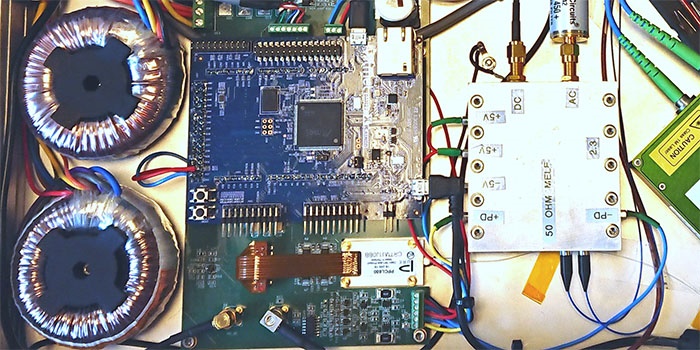New technology from bigQ protects against cyberattacks
Random numbers chosen for passwords aren’t always as random as one would think. Therefore, a new device has been developed to ensure that hackers won’t get access to these numbers. The new technology was developed through a collaboration between the Center of Excellence bigQ at the Technical University of Denmark (DTU), the University of Sheffield, the University of York and the Danish company Cryptomathic. The study behind the technology has been published in the scientific journal Nature Communications.

A new international collaboration between the Center of Excellence bigQ at DTU, the University of Sheffield, the University of York and the Danish company Cryptomathic has led to a new device that will keep hackers out. Even though there are quantum systems that generate random numbers, it is not always the case that the numbers are all that random, which means that cyberhackers can find a way in. The study behind the technology has been published in the scientific journal Nature Communications.
“Computing power keeps increasing at an exponential pace and quantum computers, capable of shattering current cryptographic schemes, are lurking around the corner. This makes generation of true and quantum-secure random numbers one of the key challenges for a future secure communication infrastructure,” said Professor Ulrik Lund Andersen, head of center at bigQ.
New device with high speed
The random numbers rely on algorithms that are only secure to a certain extent and on the assumption that the wrong people won’t look at them the right way. If that happens, then the algorithms’ randomness works against their purpose and can be compromised.
The new device, QRNG, has been created to protect against attacks that exploit these loopholes. It has the highest security against quantum attacks with its 2.9 Gbit/s rate, which makes it the fastest device to date. The speed plays a big role when it comes to security.
“QRNG technologies usually assume that hackers are classical adversaries, meaning that they don’t have access to quantum computers or other quantum technologies. We have now closed that security gap. Our device is simple, yet it allows this important assumption to be relaxed,” said Associate Professor Tobias Gehring from DTU.
Read more about the project at DTU here
Read the study behind the technology in Nature Communications here
